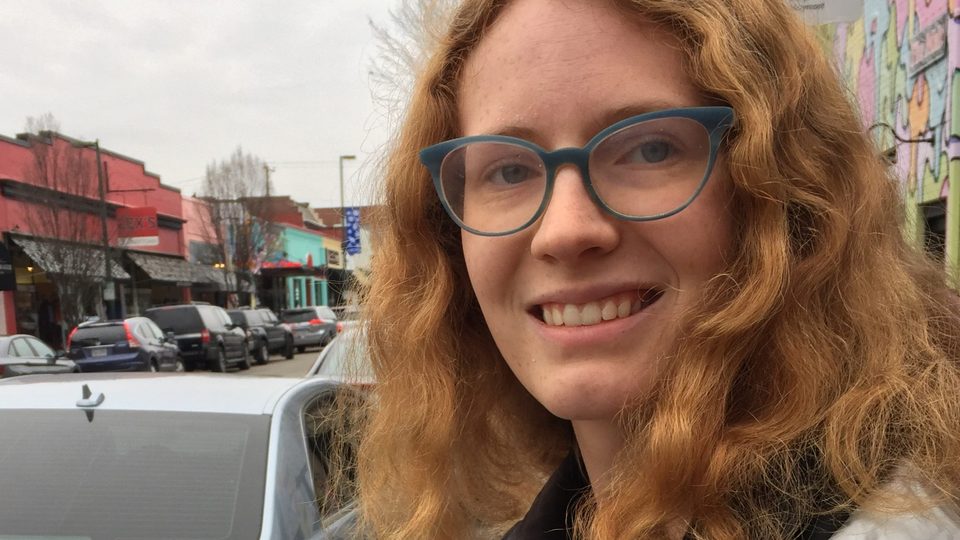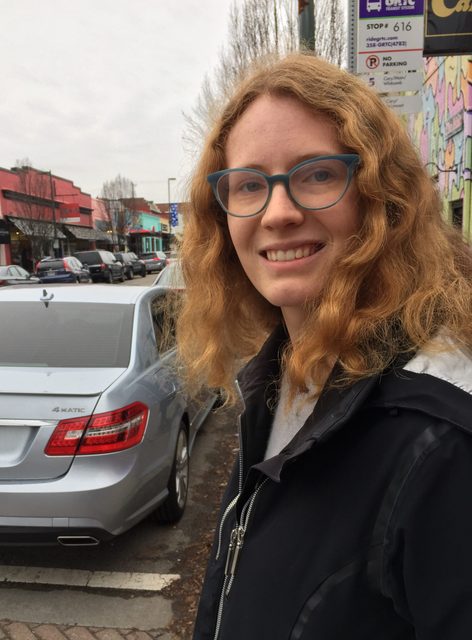Comps Insider: Kirsten Walters ’19
Kirsten Walters ’19, a political science/international relations major with a minor in history from Boulder, Colorado tells us about her senior capstone experience, or ‘Comps,’ in support of her political science degree.

What is the title of your Comps?
Write-in Duggan for Mayor, but Not on City Walls: Responses to Graffiti and Street Art in Detroit and Philadelphia
What is your Comps topic?
I’m comparing media representations of graffiti and street art in Detroit and Philadelphia. Specifically, I examine the contexts in which news sources frame graffiti as a source of moral blight, street art as a catalyst of economic revitalization, and both mediums as a means of community building. My aim in doing so is to determine when media sources utilize these frames in conjunction with one another and when they treat them as mutually exclusive. Detroit and Philadelphia are interesting case studies for examining this topic, because of Detroit’s recent concerted efforts to overcome disinvestment and Philadelphia’s long history with graffiti and mural arts.
Why did you choose your Comps topic?
In a course on urban political economy, I had the chance to read a few articles examining how cities distinguish criminalized graffiti from acceptable street art. I found these articles fascinating because while most policies impact a city and its citizens, policies regulating street art and graffiti have particularly visible consequences. Examining visual mediums provides a concrete context for analyzing who determines the acceptability and unacceptability of certain behaviors, and what biases or agendas might they have.
What was the most interesting article/or piece of information that you found while researching your Comps?
There are so many areas of research that I want to explore. I’m finding it particularly interesting to read articles that incorporate interdisciplinary methodologies, such as ethnographies and spatial analyses. Often, these articles include detailed accounts of specific neighborhoods. This narrow focus enables the authors to highlight the wide variety of actors competing to determine the use of place. Simultaneously, residents might prioritize safety and cultural preservation while businesses might promote development and local politicians might focus on elevating their city’s reputation.
What was your Comps process like?
I wrote a final paper for my urban political economy class that focused specifically on responses to graffiti and street art in Detroit. I now have the chance to work one-on-one with a faculty adviser to revise my paper, add a second case study on Philadelphia, and formalize my methodologies to incorporate a content analysis of local news articles mentioning graffiti and street art.
Why do you think it was valuable for you to write a Comps?
The chance to conduct self-guided research has been valuable. I often feel that because Carleton terms are so short, I can’t focus on any one topic with as much depth as I’d like. My Comps provides me with the opportunity to dig into a topic while still having the guidance of supportive faculty advisers.
Will you expand on your Comps in any way?
I’m planning on attending graduate school to study local governance and social policy, so I hope that I might have the chance to further this research or study related topics. Regardless of whether I expand on my project, the Comps process gives me confidence that I’ll be prepared to conduct future independent research.
